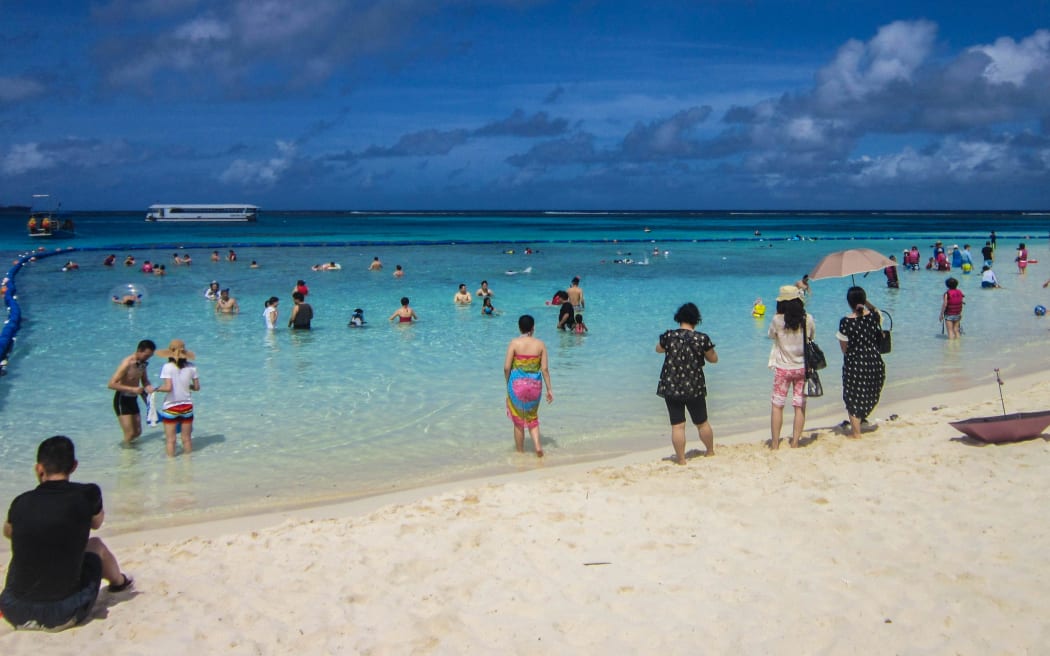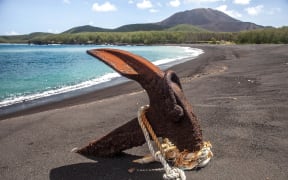
As of 2016, the top source markets for tourists to the Northern Marianas were South Korea, followed by China, then Japan. Photo: RNZI / Mark Rabago
The Commonwealth of Northern Marianas (CNMI) will now have a new program to attract tourists from the People's Republic of China following the Department of Homeland Security's decision to go ahead with the CNMI Economic Vitality & Security Travel Authorization Program.
EVS-TAP, which will also add border security against undesirables entering the CNMI, replaces the discretionary parole program, which essentially allows Chinese tourists to visit the CNMI for two weeks without having to obtain a non-immigrant visa.
Saipan Chamber of Commerce said the creation of the EVS-TAP program, which is specific to travelers coming to the CNMI from the PRC, is good news for Northern Marianas as it essentially has the same provisions as the discretionary parole program but with features that bolster national security.
"We want people who should not be here to not be allowed entry to the CNMI," Chamber president Joseph Guerrero said.
"The discretionary parole is authorisation that the secretary of Homeland Security bestows upon Customs and Border Protection officers to admit people on a case-by-case basis, versus the CNMI EVS-TAP, which is a rule that becomes law that essentially allows CBP to conduct a pre-vetting of travelers before they arrive."
For the past few years, the CNMI has been exerting tremendous efforts to revive the tourism industry with the hope of bringing the CNMI's arrival numbers back to the level before the Covid-19 pandemic.
However, geopolitical tensions hindering the return of the China market-which makes up nearly half of the CNMI's tourist population pre-Covid has slowed the recovery process.
Last week, DHS approved the interim final ruling establishing the EVS-TAP and amending the Guam/CNMI Visa Waiver Program.
The program would essentially allow visa-free travel for pre-screened travelers from China to the CNMI.
Under the current parole system, tourists from China present paper documents on arrival in the Marianas. Customs and Border Protection officers only have a few minutes to decide to allow entry.
Under the current visa waiver program regulations, a paper US Customs and Border Protection form is presented to CBP upon arrival.
The EVS-TAP program arose from the consultations between the administrations of then-governor Ralph DLG Torres and then-US president Donald Trump in 2019 as a way to tighten control of tourism between the Marianas and China. The 2019 plan was never implemented.
US lawmakers previously wrote to Homeland Security Secretary Alejandro Mayorkas about the entry of nationals from the China into the CNMI through the discretionary parole program.
That letter called for the program's abolition.




